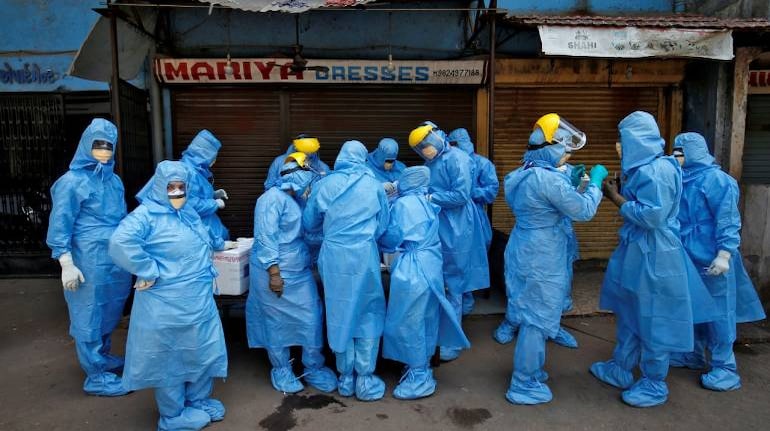



India is readying separate rapid response teams for dispatching to friendly neighbouring countries like Bangladesh, Bhutan, Sri Lanka and Afghanistan in the spirit of its commitment to help them deal with the coronavirus pandemic, official sources said.
A 14-member rapid response team was sent to the Maldives last month to help the island nation set up coronavirus testing laboratories and train local medical professionals to fight the pandemic.
Earlier this month, India sent a 15-member team, comprising healthcare personnel from the Army, to Kuwait as part of bilateral cooperation between the two countries.
Three weeks back, India gifted a 10-tonne consignment of essential life-saving medicines to Sri Lanka in view of the COVID-19 crisis.
India has assured all friendly neighbouring countries of all possible assistance to help them fight the pandemic. New Delhi has also been playing a key role in pushing for a common framework in dealing with the crisis.
At a video conference on March 15, Prime Minister Narendra Modi pitched for formulating a joint strategy to fight COVID-19 in the SAARC region and proposed an emergency fund with an initial offer of USD 10 million from India. It is understood that India has already made the contribution.
The South Asian Association for Regional Cooperation (SAARC) is a regional grouping comprising Afghanistan, Bangladesh, Bhutan, India, the Maldives, Nepal, Pakistan and Sri Lanka.
All the SAARC member nations are reeling under the adverse social and economic impact of the coronavirus pandemic.
India is also supplying anti-malarial drug hydroxychloroquine to 55 countries. A number of countries including the US, Mauritius, Seychelles have already received the drug.
Hydroxychloroquine has been identified by the US Food and Drug Administration as a possible treatment for the COVID-19 and it is being tested on more than 1,500 coronavirus patients in New York.
The demand for the drug has swelled rapidly after India decided to lift a ban on its export.
In the neighbourhood, India is sending the drug to Afghanistan, Bhutan, Bangladesh Nepal, the Maldives, Mauritius, Sri Lanka and Myanmar, sources said.
Catch our entire coverage on the Facebook-Jio deal here
Also read: Coronavirus News India LIVE Updates
Discover the latest Business News, Sensex, and Nifty updates. Obtain Personal Finance insights, tax queries, and expert opinions on Moneycontrol or download the Moneycontrol App to stay updated!
Find the best of Al News in one place, specially curated for you every weekend.
Stay on top of the latest tech trends and biggest startup news.